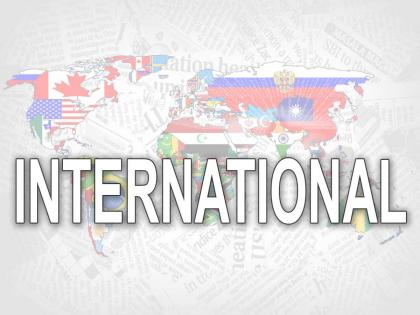Tibet seeks international cooperation in fields of infrastructure, finance, technology
By ANI | Published: June 16, 2019 07:11 PM2019-06-16T19:11:42+5:302019-06-16T19:25:27+5:30
Chairman of Tibet Autonomous Region Che Dalha, nicknamed Qizhala, has batted for international cooperation in the field of infrastructure, trade, culture, finance, and technology development in the region.

Tibet seeks international cooperation in fields of infrastructure, finance, technology
Chairman of Tibet Autonomous Region Che Dalha, nicknamed Qizhala, has batted for international cooperation in the field of infrastructure, trade, culture, finance, and technology development in the region.
Addressing a high-profile forum in Tibet, attended by top local officials and international experts that took place Friday, "the Chairman sought for international cooperation in infrastructure, trade, culture, finance and technology," Xinhua agency has reported.
The Chairman also noted that Tibet will actively promote the building of the Trans-Himalayan Multi-Dimensional Connectivity Network.
Around 70 overseas government officials, scholars, journalists, and top officials took part in the event that focused on the plans and new opportunities brought to Tibet by China's Belt and Road Initiative (BRI) worth billions of dollars.
The BRI is a development strategy adopted by the Chinese government to strengthen its global influence through reshaping infrastructure development and investments in countries of Europe, Asia, and Africa.
Wang Yanzhong, a researcher with the Chinese Academy of Social Sciences, was quoted as saying that Tibet is an important region to seek cooperation with South Asian countries.
China hosted the second Belt and Road Forum for International Cooperation (BRF) in Beijing in April.
"By jumping on the Silk Road bandwagon, Tibet is opening wider to the rest of the world," said Shen Bing, an expert on the regional economy at the Chinese Academy of Macroeconomic Research.
Xigaze, Tibet's second-largest city on the border, has excellent conditions to become a base for processing trade between China and South Asia, Shen said. It has six ports and 28 spots for the border trade.
"Xigaze has over 400,000 members of its workforce with an average of 10 years of education. It should play a stronger role in the opening up of the region," he added.
According to reports, Tibet's import and export trade was 4.8 billion yuan (about USD 693 million) in 2018. Enterprises in the region invested about USD 280 million in countries participating in the Belt and Road Initiative.
( With inputs from ANI )
Open in app